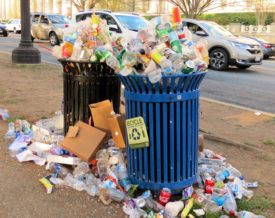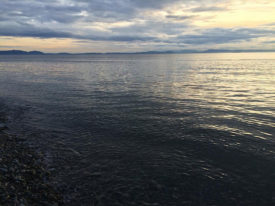 This just in: the National Marine Fisheries Service (NMFS) just announced that it will list as endangered the southern resident orcas–the whales most commonly seen in Puget Sound. The NMFS decision came as something of a surprise because the agency had first declined to protect the orcas under the law. Then, following a court order to reconsider that decision, they proposed listing the whales as "threatened," a weaker standard under the law.
This just in: the National Marine Fisheries Service (NMFS) just announced that it will list as endangered the southern resident orcas–the whales most commonly seen in Puget Sound. The NMFS decision came as something of a surprise because the agency had first declined to protect the orcas under the law. Then, following a court order to reconsider that decision, they proposed listing the whales as "threatened," a weaker standard under the law.
Today’s listing—which affirms that the orcas are indeed at risk of extinction—is nothing short of a huge victory for conservationists. Though orca populations have been on the rebound lately, there is still much cause for concern because of the daunting array of threats that they face, everything from anemic salmon runs to marine vessel traffic to toxic contamination.
The effects of the listing remain to be seen, but orca restoration will finally get the attention that it deserves. No doubt preserving the southern resident orcas will require changes to the way that we northwesterners act on our native ecology. But I suspect those changes will be good not only for the orcas—they’ll be good for us too. Or as my favorite author once wrote:
Restoring [Puget] Sound is good for whales, but it is also quite clearly good for those other inhabitants of the Puget Sound region—people. As the top predators of a diverse food web, the orcas embody the fate of the entire Sound. Their growing numbers are a promising sign that we can successfully improve ecological conditions, not only for the orcas but for us too. Cleansing the Sound of toxics and bringing back its abundance of salmon will take work but there is plenty of evidence that we can do it.
Read the NMFS press release (pdf). Media coverage here and here.








